Gold medalist para-equestrian Lauren Barwick, whose Bridging the Gap Farm is based in Reddick, is aiming for the 2020 Summer Paralympic Games in Tokyo. Her inspiring journey has been one of overcoming unforeseen challenges, one stride at a time.
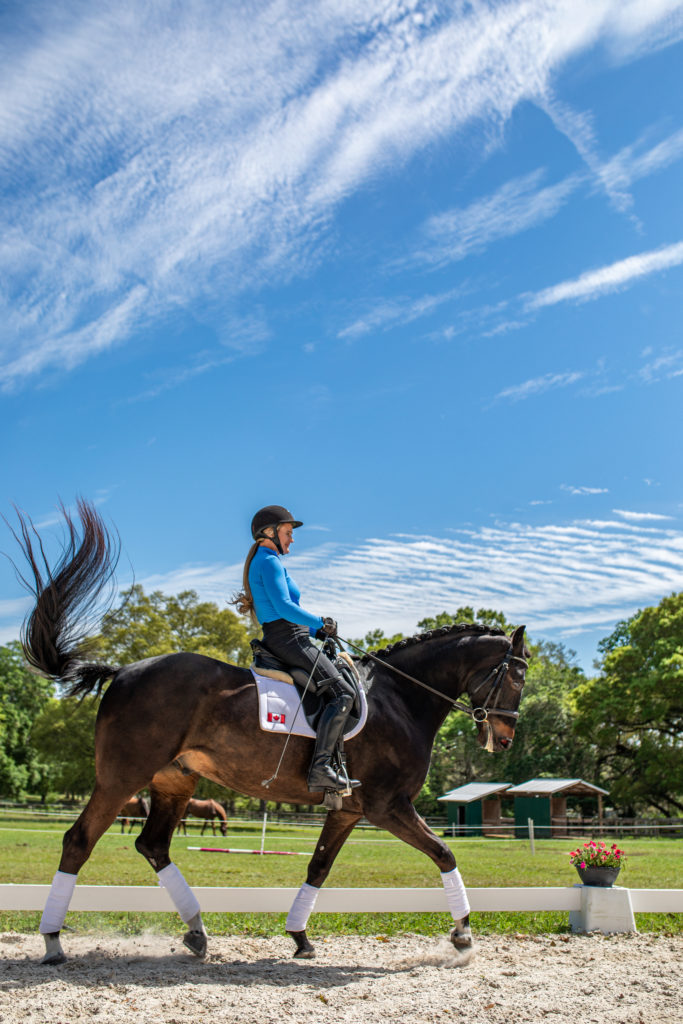
Lauren Barwick always expected to go through life on horseback. And she has, just not exactly the way she envisioned.
Growing up in Vancouver, Canada, Barwick progressed from a childhood pony who loved to bolt at a full gallop back to the barn to three-day eventing, fox hunting, show jumping and training young horses.
“I loved all things horses and especially enjoyed working with challenging horses,” says Barwick, who pronounces her first name as la-REN. “But I also loved cooking and acting. I graduated high school with a level one chef’s apprentice and then spent several years working in kitchens while still riding. Then I finally decided on a career with horses and acting.”
Off she went to a movie studio ranch to work with stunt horses and hone her acting skills. During a six-month internship program, Barwick logged time as a movie extra.
One of particular note was portraying a ranch woman, riding in a scene, in The Pledge, which starred Jack Nicholson. When the internship program ended, she was hired full time.
Two weeks later, on June 17th, 2000, Barwick’s life was forever changed.
“I was feeding horses in the barn when a 100-pound hay bale fell 10 feet from the hay loft and landed on me,” recounts Barwick, 42, with the matter-of-fact distance 20 years of perspective allows one. “It broke my back and severed my spinal cord. At 22, I was left paralyzed from the belly button down. My life was different from that moment on.”
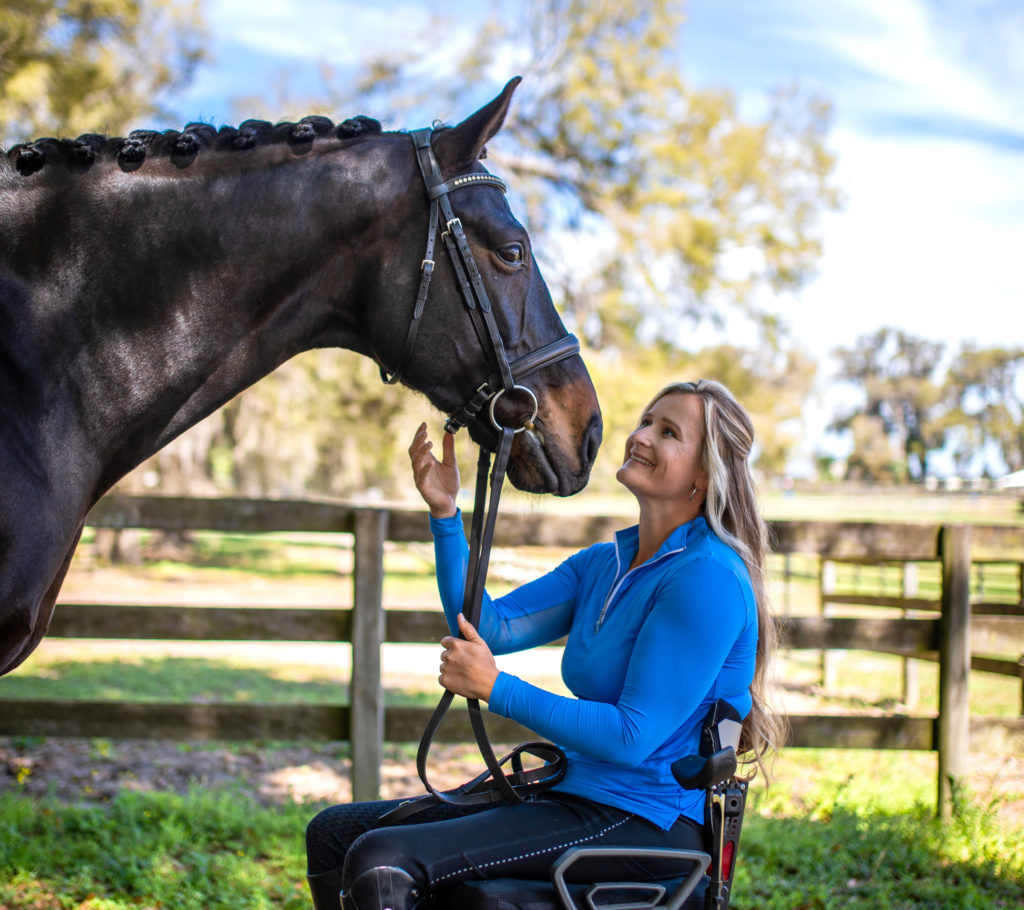 But Barwick would soon learn that with even with devastating change also comes new opportunities. And what she did with those would reshape her life.
But Barwick would soon learn that with even with devastating change also comes new opportunities. And what she did with those would reshape her life.
“Of course, I was very angry that riding was over for me,” admits Barwick. “When I thought of riding, all I saw was me being led around in a circle. And that was not for me.”
But even without riding, Barwick wanted to be as active as possible. She tried different sports, clicking with sailing, and even raced sailboats. Barwick gave back, volunteering to take disabled children out on the water.
“All of this was a big part of my recovery, learning I could still be active and help others as a paraplegic,” Barwick offers. “But I found myself missing being around horses. So, I started teaching riding students from my wheelchair. Then, one day in the arena, I just started crying uncontrollably.”
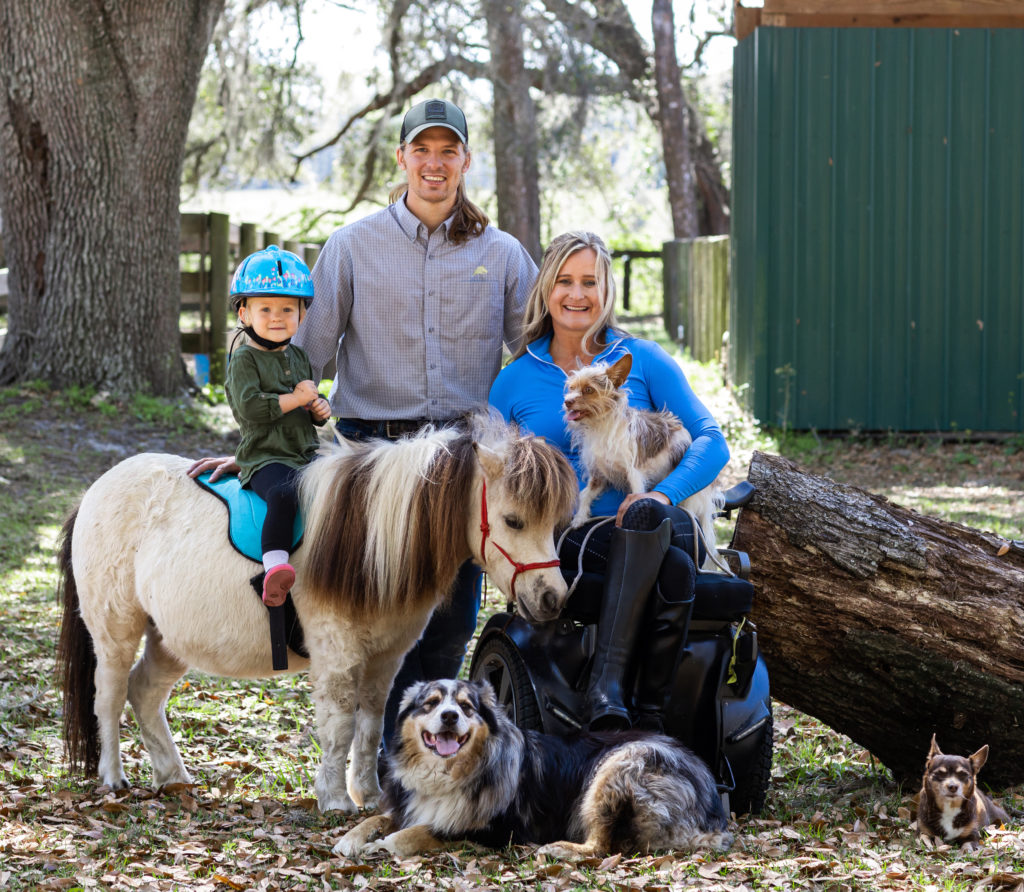
When Barwick tried to wheel away out of the riding arena, two people picked her up and put her on a horse.
“It was my worst nightmare come true. There I was slouched over the saddle with absolutely no sensation of sitting on a horse and being led around the ring,” she recalls. “That night, I knew I had a decision to make—either get over my pride and self-pity or stop being around horses altogether. The next morning, I went back to the barn and asked to be put back on a horse.”
Learning to ride all over again as a paraplegic was arduous for Barwick.
“Riding is all about balance, being in touch with the horse through your seat and legs. Now I had no feelings in my sit bones or my legs. But I could still communicate with the horse with my hands through the reins,” explains Barwick. “I started back riding on a Western saddle, basically secured to it by horse leg wraps to keep me from tipping out of the saddle. Then it was a very slow transition back to an English saddle. Eventually, I got a customized English saddle with knee rolls and a handlebar to keep me from tipping forward so I could maintain a seat. I started using voice commands and riding with two crops to cue the horse.”
As her riding progressed, Barwick was contacted by the Canadian paralympic team and joined it. In 2003, only three years after the accident, Barwick found herself flying with Team Canada to Portugal for the World Equestrian Games and competing in dressage. In 2004, she competed with Team Canada at the Summer Paralympic Games in Athens, Greece.
“Despite those amazing experiences, I still felt like something was missing. Other people were training the horses I rode and I just felt like a passenger,” she reveals. “I wasn’t happy and something needed to change for me to go on.”
Barwick got just what she needed in 2005 when a friend put her in contact with natural horsemanship trainer Pat Parelli. Along with his wife Linda, they maintain horse training centers in Colorado and Ocala.
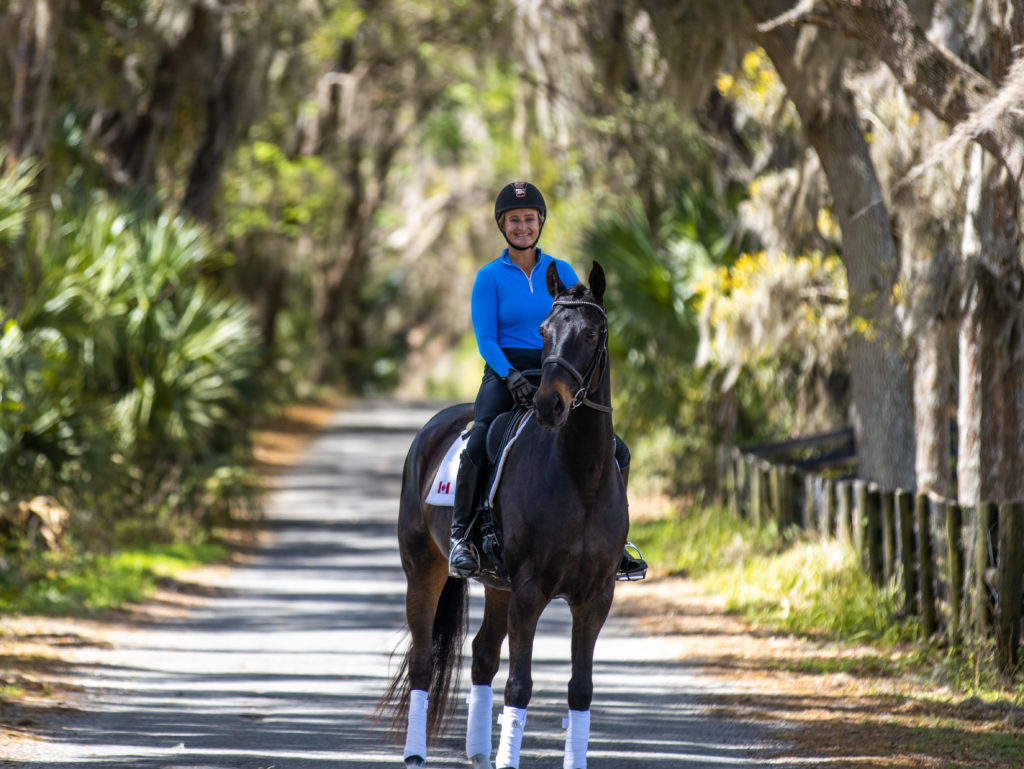
“I spent two weeks in Colorado, being introduced to the natural horsemanship program. I herded cattle and rode in the mountains,” Barwick recalls. “I was re-energized and could see a way forward. The natural horsemanship program showed me how I could train my own horses from my wheelchair. I moved to Ocala, managed the Parelli barn for six years and became a 4-Star Senior Parelli Instructor.”
With the Parellis as her sponsors for the next seven years, Barwick also continued to compete on the international stage. 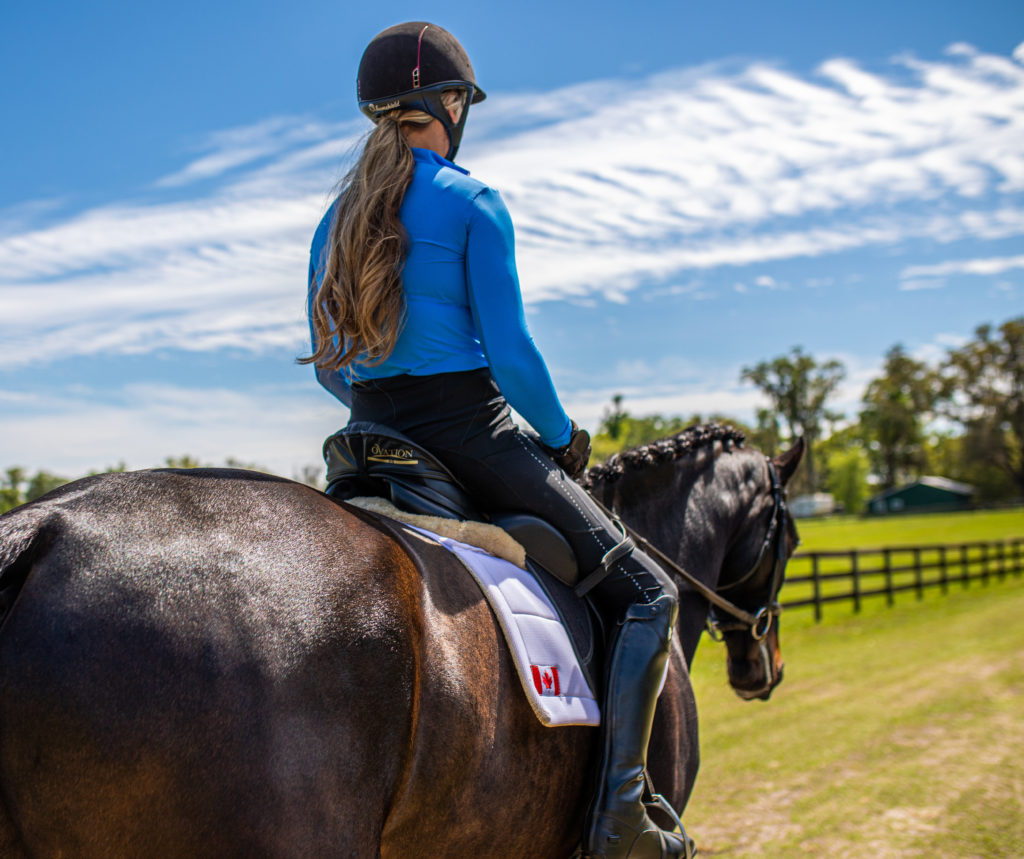 In 2008, her talent and persistence paid off with a gold medal in freestyle para-dressage and a silver medal in individual para-dressage at the Summer Paralympic Games in Beijing. Barwick’s mount for the medal-winning performances was Maile, a Dutch Warmblood mare owned by the Parellis.
In 2008, her talent and persistence paid off with a gold medal in freestyle para-dressage and a silver medal in individual para-dressage at the Summer Paralympic Games in Beijing. Barwick’s mount for the medal-winning performances was Maile, a Dutch Warmblood mare owned by the Parellis.
“It was truly such a special moment,” Barwick offers. “It was the moment that I had been riding to since becoming a paraplegic.”
Among the other significant moments she experienced are the 2014 World Equestrian Games/Normandy, France (silver and bronze medals); 2015 World Para-Reining Champion and induction into the Canadian Disability Hall of Fame; and her 2017 Team Canada Gold/World Para-Reining International Championships/The Netherlands.
Outside of the competition ring, Barwick moved on with other aspects of her life. In 2013, she established her Reddick-based Bridging the Gap Farm and teaches natural horsemanship clinics there as well as on the road. In 2015, Barwick married Fabian Brandt, and they are parents to 2-year-old daughter Viola. Barwick and Brandt also serve as trainers for the Horse Protection Association of Florida, which is based in northwest Marion County. They use the natural horsemanship method to retrain rescued horses and make them more adoptable.
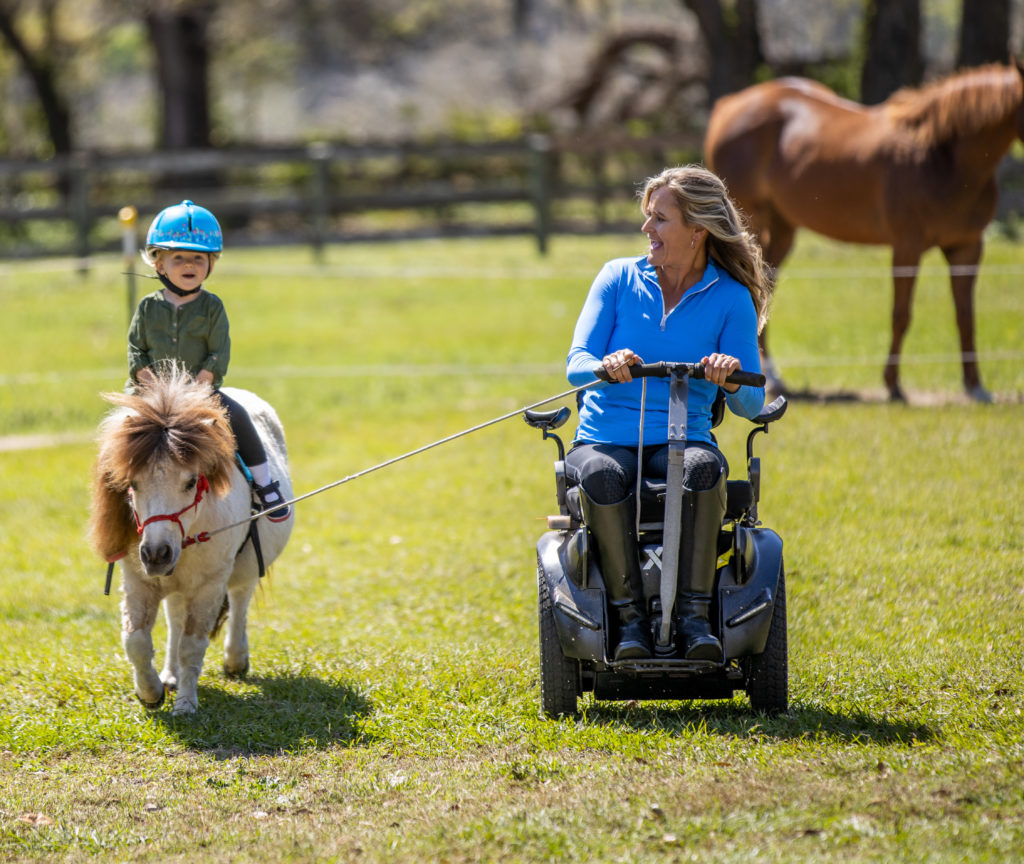 “Getting married and having Viola have had a major impact on my life,” says Barwick, who still loves to cook. “There have been lots of obstacles and challenges, but I’m also very grateful for my life.”
“Getting married and having Viola have had a major impact on my life,” says Barwick, who still loves to cook. “There have been lots of obstacles and challenges, but I’m also very grateful for my life.”
Barwick, who still competes with Team Canada, is working toward qualifying for the 2020 Paralympic Games in Tokyo, Japan, now rescheduled to August 2021.
“There are four international and six national shows that are qualifying events,” notes Barwick. “It’s a very rigorous schedule; you need good horses and lots of luck too.”
With Tokyo on her mind, Barwick is also reflecting on upcoming life changes.
“I’d like to transition to retiring from competition and stay home more with my family. I do want to continue teaching, particularly teaching people to have fun with their horses,” she asserts. “And when I do retire, I want it to be on the best riding day of my life.”






